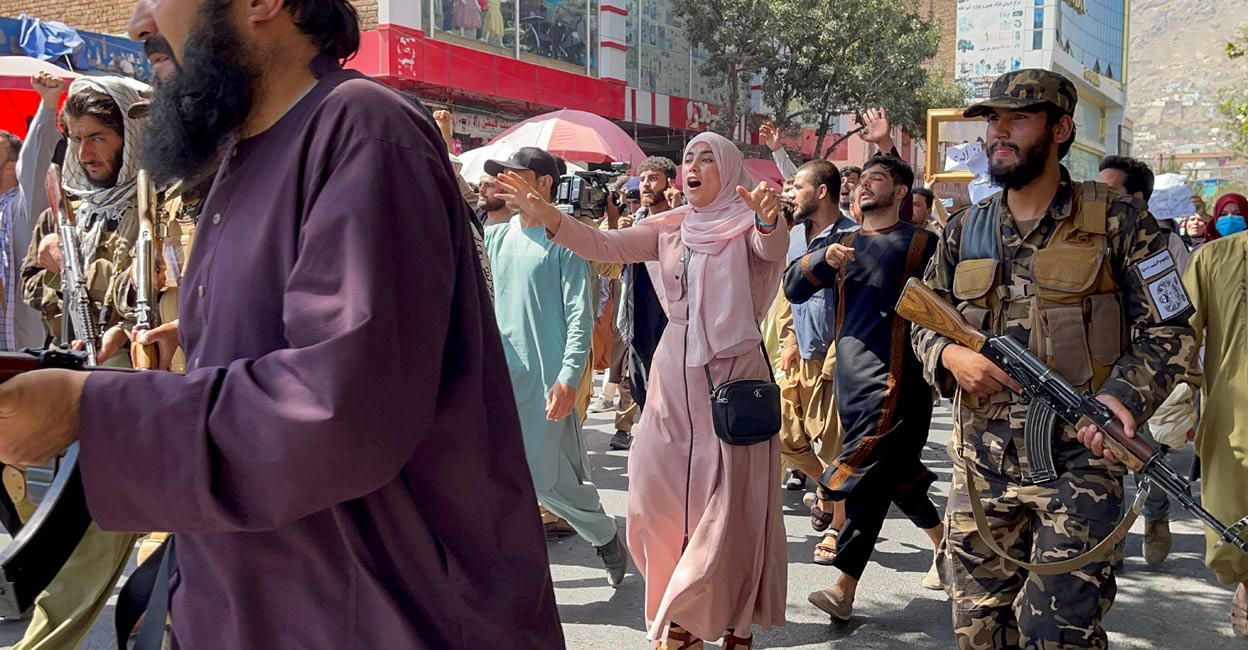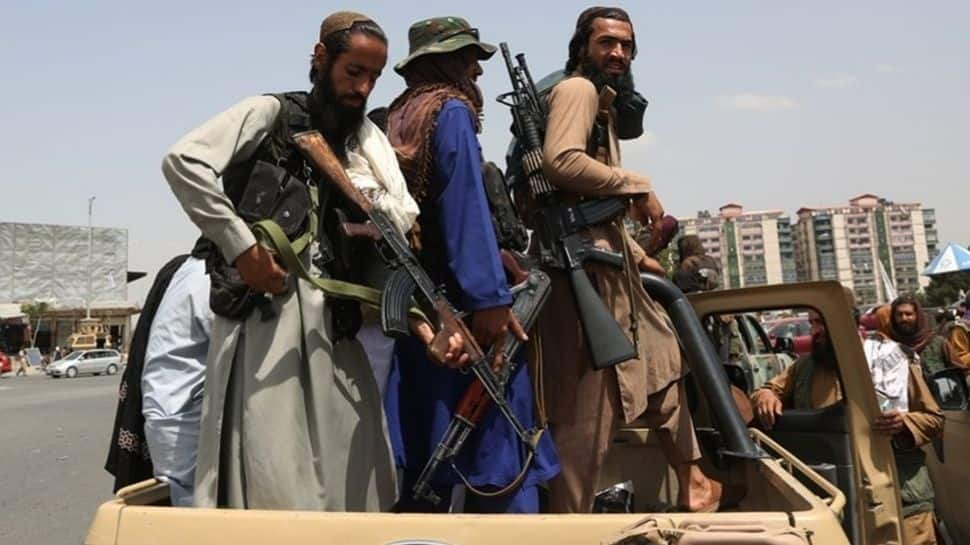A small yet fairly appropriate representation of the current judicial scenery in today’s Taliban ruled Afghanistan can be traced out from an image where a single small carpeted room has been converted into a makeshift jail for twelve alleged criminals, who still await justice to be delivered.

This jail has been set up in the Taliban headquarters situated in the Panjwai district of southern Afghanistan, where due to an acute ‘shortage’ of judicial decision-makers, not even one of these men have been produced before a local judge, who already seems fairly occupied. By the time justice seeks to be delivered, all these ‘criminals’ have to do is wait. Thereby giving a clear picture of the state of justice in Afghanistan.
As per Adam Bazco, a fellow research investigator in Afghanistan, though the Taliban have established their full-fledged control only after two decades of western seizure of Afghan land, they had long ago devised their version of justice, congruent to their ideology of course. They say courts are a means of conquering power. Surprisingly, in the regions that have hitherto been ruled by the Taliban militants, the local civilians have increasingly reached out to them, who essentially were discontented with the Euro-American interference, especially when it came into limelight, land disputes. It was regarded to be flawed and nepotistic and this is apparently where the Taliban laid its ideological roots from.

Though a fraction of individuals stood against the Taliban system of punishing and policing, the others seemed to have been in its favour, for it was swift, impartial, and predictable, with an element of harshness included. However, establishing the said judicial machinery in the entire Afghan land is comparatively much more difficult than what it previously has been.
There do exist people who view the Islamic Law as the ultimate and the superior most vis-à-vis the rest and feel that it should prevail in the entire Afghan land, either through the Taliban or whatever. “It is better than the religion decides as to who is a criminal and who isn’t,” says Mansour Maulavi, who at one point of time used to run the region’s clandestine Taliban prison. He goes on to criticize the erstwhile western regime sponsored judicial setup, which was far beyond establishing a just society.
Apparently, between the Taliban and the civilians, it is their preferred belief over the ‘true Islamic justice’ that has become a sweet spot or better to put, a bone of contention. While both the parties revere it, one views it as a saviour and the latter as an instrument to justify its deeds, sometimes questionable.
Mohammad Naeem is one of those waiting inside the prison cell, with a belief that a true law will deliver to him his desired justice. Two months ago, he was arrested from his home where he sat with his wife and a fourteen-year-old girl, whom he wished to marry. The thirty-five-year-old, accused of sexual assault, says that the girl gave her full consent to be married but not her parents, and apparently, they were the ones who had filed a complaint regarding this under the aegis of the Taliban.

Although, the Taliban has always portrayed itself as the protector of the Sharia and the guardian of what constitutes it. The Taliban’s vision of morality and justice however doesn’t appear coinciding with its deeds.
They may discuss vigorously establishing a just order, the one Islam demands but leaves no stone unturned to promote their selfish interests, even when it is incompetent to deliver it makes false promises and goes into extremes often surpassing the threshold of humanity!
Also Read: HSBC Exceeds China Wealth Hiring Targets
















